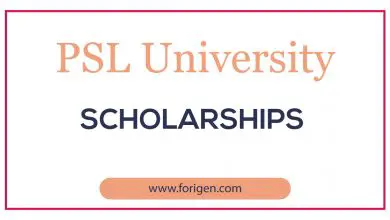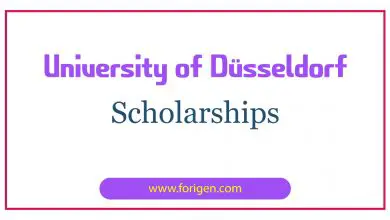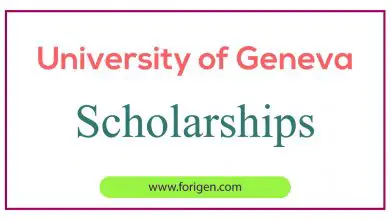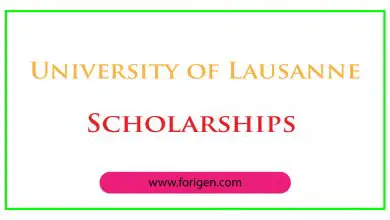IST Austria Scholarship 2024 for international Students – Accepting Applications
IST Austria is looking for highly qualified candidates to apply for the Ph.D. program at IST Austria.
What is IST Austria?
IST scientists, from professors to postdocs to students, hail from all corners of the world, representing over 60 different nationalities, and building on research and degrees earned from the finest global scientific institutes and universities.
IST Austria’s faculty hiring strategy is encapsulated by the motto People before area; quality before speed. We are dedicated to bringing the best minds of the world to IST Austria to pursue cutting-edge basic science research. The Institute was inaugurated in 2009 and will grow to about 90 research groups by 2026. This exciting momentum is driven forward by every scientist added to our team, including every Ph.D. student.
In all fields of research, funding is a very important topic. IST Austria relies on diverse funding sources to support all its researchers. The Grant Office is there to support IST scientists who would like to apply for external funding.
Scientific Service Units (SSUs) provide support for scientists’ research needs. The following SSUs are hosted by IST Austria:
Latest Scholarship by IST Austria
We offer fully-funded Ph.D. positions in the natural and mathematical sciences in a world-class research environment on the outskirts of Vienna. For more information about our Ph.D. program, please visit the Ph.D. Program Overview page.
Who can apply for IST Scholarship?
Students with a bachelor’s or master’s degree in biology, neuroscience, mathematics, computer science, physics, and related areas are encouraged to apply. We offer internationally competitive salaries, full health benefits, and subsidized on-campus housing in the first year.
How to apply for IST Austria Scholarship?
IST Austria processes applications to its Ph.D. program once a year. The application portal will be available in the Fall. To apply, you have to create an online account, which will allow you to track your application through its various stages. We do not accept applications and documents received outside of this system.
Documents required to apply for IST Fellowship
We ask you to upload the following documents to the application portal:
-
- CV
- Statement of purpose that explains your research experience and your motivation for applying to the IST Austria Ph.D. program. It should 1-2 pages maximum. In your statement, specify up to three research groups you find the most interesting. At this stage, you do not need to contact potential supervisors.
- University transcripts and diplomas of all degree programs and all years you have attended and/or are currently enrolled in (in English and in original language)
- Contact information of 3 referees (Recommendation Letters)
All documents have to be submitted in English and copies of university transcripts also in their original language.
Selection Process for IST Fellowship
The selection committee uses a collection of indicators to evaluate the applicant’s preparedness, motivation, and potential. The following will be considered:
-
- Undergraduate performance: overall, with a special focus on relevant field-specific courses
- Reference letters provided by professors and senior scientists: one letter from industry is acceptable, but letters from an academic background are given priority; referees are asked to address analytical capabilities, technical proficiency, ability to work independently and motivation/commitment;
- Statement of purpose: the applicant’s past research experience and motivation for applying to this particular Ph.D. program: is it a good academic fit? does the program contribute to the candidate’s future career plans? etc. Candidates may also submit a research proposal.
- Additional relevant skills (field-specific): demonstrated in, e.g., internships and/or participation in research projects, participation in science Olympiads, programming languages, lab techniques, etc.
- Quality of the undergraduate background, i.e. quality of the institution attended
- Transferable skills: e.g. communication skills, experience with working in teams, previous mobility and international experiences, leadership experience as demonstrated in student organizations, etc.
- Diversity: e.g. a woman in computer science/math/physics; an applicant who switched fields, etc.




